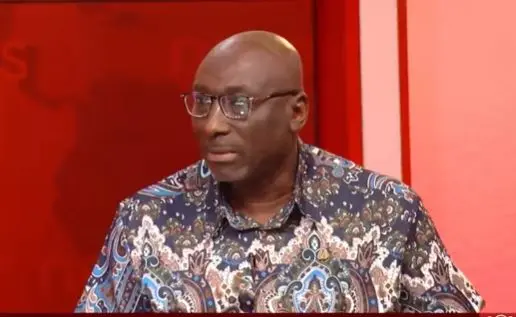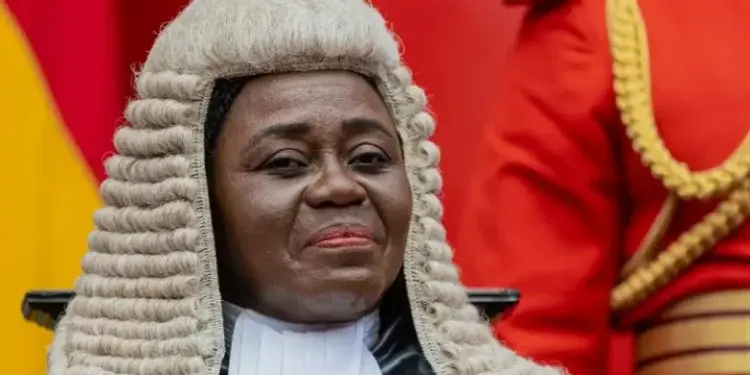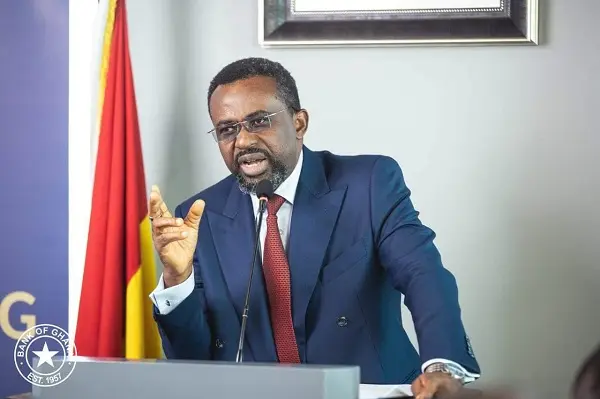Accra, Ghana – A leading member of the National Democratic Congress (NDC) legal team, Abraham Amaliba, has cautioned against the potential dangers of prioritizing democratic ideals over the strict adherence to constitutional law in Ghana. Speaking on JoyNews’ *PM Express*, Amaliba warned that conflating democracy with constitutional limits could ultimately unravel the very fabric of Ghana’s constitutional order. His comments come amid ongoing debates about transparency and due process in high-profile legal proceedings.
Amaliba’s central argument is that democracy, while vital, must operate within the clearly defined boundaries set by the Ghanaian constitution. Treating democratic impulses as superior to established legal principles, he suggests, could lead to instability and a disregard for the rule of law.
Understanding the Distinction: Democracy vs. Constitutional Law
Democracy, at its core, is a system of government where power resides in the people, typically exercised through elected representatives. It emphasizes participation, representation, and the will of the majority. However, constitutional law provides the framework within which that democracy functions. It defines the structure of government, its powers, and the fundamental rights of citizens, acting as a check on the potential excesses of popular will.
“Democracy is different from what the law is. The law is not democracy. Democracy is not a law. These are two different things,” Amaliba stated emphatically. He argues that confusing these two distinct concepts could have serious consequences for Ghana’s governance.
The Chief Justice Impeachment Debate: A Case Study
The current debate surrounding the impeachment proceedings against Chief Justice Gertrude Torkornoo provides a crucial context for Amaliba’s warning. The question of whether these proceedings should be held in camera (behind closed doors) has sparked considerable public discussion, pitting the desire for transparency against the need to respect established legal procedures.
While many advocate for open proceedings in the name of good governance and public interest, Amaliba insists that constitutional provisions must take precedence, regardless of public sentiment. “You may talk about good governance, you may talk about public interest, but the law is the law, as the embattled Chief Justice rightly said,” he noted, underscoring the importance of adhering to legal procedure even when it conflicts with popular opinion.
Ignoring constitutional processes in favor of popular opinion or perceived expediency, Amaliba suggests, could set a dangerous precedent, undermining the integrity of Ghana’s legal system and the constitutional limits intended to safeguard it.
The Supreme Court and Constitutional Boundaries
Amaliba also addressed the role of the Supreme Court within the constitutional framework. He emphasized that the Court’s powers are not unlimited but are specifically defined and constrained by the Constitution.
“The Supreme Court can only do what the Constitution says it can do. The Supreme Court cannot do what the Constitution doesn’t say it can do,” he explained. This statement highlights the critical importance of adhering to constitutional limits, even for the highest court in the land.
Allowing the Supreme Court to exceed its constitutional authority, Amaliba argues, could lead to judicial overreach and ultimately undermine the entire constitutional framework, blurring the lines of power and accountability.
Framing the Constitution and Potential Future Impacts on National Security
Amaliba also delved into the intention of the framers of the Constitution, suggesting that they likely anticipated the need for certain matters to be held in camera, particularly those involving sensitive information. This perspective sheds light on the rationale behind specific constitutional provisions.
“I want to believe that the framers of the Constitution were of the view that such matters, because of the position of the Supreme Court, may involve information that, if leaked, could negatively impact the country,” Amaliba stated. His point is that the framers recognized the potential dangers of certain information entering the public domain.
Expanding on the potential ramifications of information leaks from Supreme Court proceedings, Amaliba warned of the possible negative impacts on national security or public health. “It could be national security, public health, we don’t know where it will touch,” he cautioned. This underscores the importance of considering the broader implications of transparency, particularly when sensitive matters are at stake.
In conclusion, Abraham Amaliba’s remarks serve as a critical reminder of the importance of upholding constitutional limits in Ghana. He cautions against the temptation to prioritize democratic instincts over legal obligations, emphasizing the potential risks to Ghana’s governance system if the Constitution is interpreted based on convenience or popular opinion. Maintaining a stable and just society hinges on respecting the delicate balance between democracy and the rule of law, ensuring that constitutional limits are not disregarded in the pursuit of popular will.
Image Source: MYJOYONLINE






















